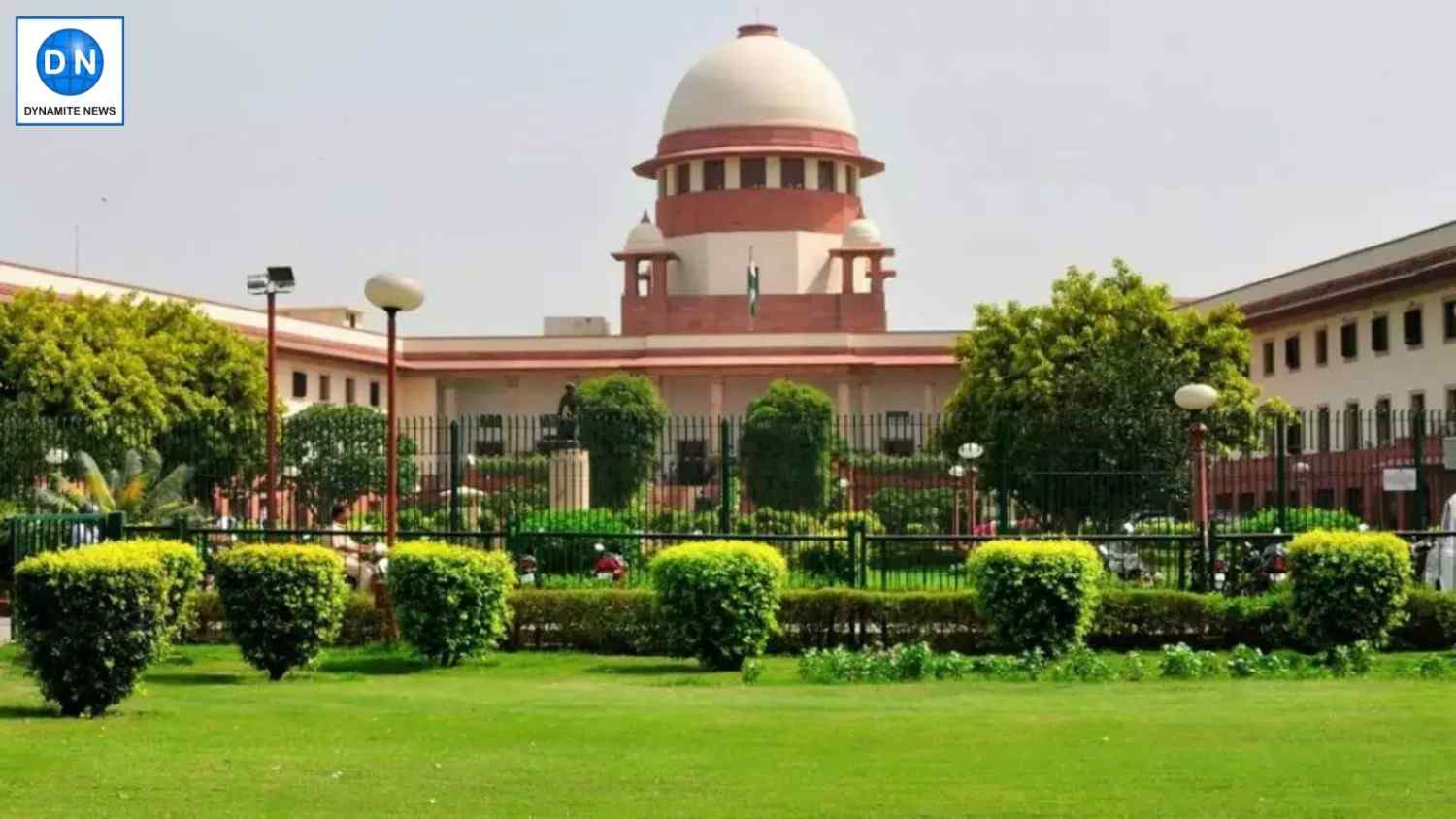
New Delhi: The Supreme Court on Monday scheduled a hearing on the matter concerning the Krishna Janmabhoomi in Mathura and the Shahi Masjid Idgah issue for January 2025.
A bench comprising Chief Justice of India (CJI) Sanjiv Khanna and Justice Sanjay Kumar to list the matter after the winter vacation following a brief hearing.
Various petitions are being heard by the Supreme Court arising out of Mathura's Krishna Janmabhoomi and Shahi Masjid issue.
In one of the matters, the Committee of Management Trust Shahi Masjid Idgah has approached the Supreme Court challenging the Allahabad High Court order rejecting the mosque committee's objection regarding the maintainability of multiple lawsuits initiated by Hindu devotees.
The plea filed by the Committee of Management Trust Shahi Masjid Idgah challenged the order dated August 1 passed by the High Court of Allahabad whereby the High Court dismissed the applications under Order VII Rule 11 of the Code of Civil Procedure (CPC). These applications sought to reject the plaints in 15 different suits filed by the Hindu devotees.
Also Read |
SC stays Allahabad HC order for appointing Commission for Shahi Eidgah Mosque in Mathura
The management committee has filed the plea through advocate Mehmood Pracha and RHA Sikander and also sought interim relief in the form of a stay on the High Court's order.
More than 15 suits by different plaintiffs have been filed claiming competing rights over the Shahi Masjid Idgah on the ground that it is the site of the birthplace of Lord Shri Krishna (Krishna Janmabhoomi).
"The Petitioner herein who has been arrayed as a Defendant by the different plaintiffs or respondents herein in the subject (15) suits had filed individual applications under Order VII Rule 11 of the CPC in each suit for rejection of the respective plaint. The plaints were inter alia barred by the provisions of the Limitation Act, Places of Worship Act, Specific Relief Act, Waqf Act and Order XXIII Rule 3A of the CPC," the plea said.
"After hearing all the parties in all the 15 suits, the High Court has passed an inherently flawed Judgement by combining selective pleadings of different suits filed by different plaintiffs/respondents herein (containing differing pleadings and claiming different reliefs), into a common hotchpotch, to make a new composite suit from the pleadings of the 15 suits and thereafter, reading them selectively to dismiss all the applications under Order VII Rule 11 of the CPC filed in all the 15 suits by a common Judgment," the plea said.
"The High Court has passed a common judgment by a selective combined reading of the pleadings in 15 Suits and not taking into consideration the specific pleadings of each plaint to decide whether that particular plaint is barred by law based on its pleadings," the plea filed by mosque committee said.
Also Read |
SC to constitute bench to hear AAP govt's plea on transfer of Delhi's services secretary
On August 1, the Allahabad High Court dismissed the petition filed by the mosque committee challenging the maintainability of lawsuits initiated by Hindu devotees.
Various matters relating to the Krishna Janmabhoomi-Shahi Idgah Masjid dispute are being dealt with in different legal forums. Previously, the Committee of Management Trust Shahi Masjid Idgah filed an appeal in the top court against an order passed by the Allahabad High Court on May 26. The order transferred all cases related to the Mathura Krishna Janmabhoomi land dispute from the District Court of Mathura, Uttar Pradesh, to itself.
Ranjana Agnihotri, a resident of Lucknow, had filed a suit in the Mathura court seeking ownership of 13.37 acres of land of Shri Krishna Janmabhoomi. In her legal suit, Agnihotri demanded the removal of the Shahi Idgah mosque built in Krishna Janmabhoomi.
The suit filed in the Mathura court sought the removal of a mosque said to have been built in 1669-70 on the orders of the Mughal Emperor Aurangzeb in the 13.37-acre premises of Katra Keshav Dev temple near the birthplace of Lord Krishna.







